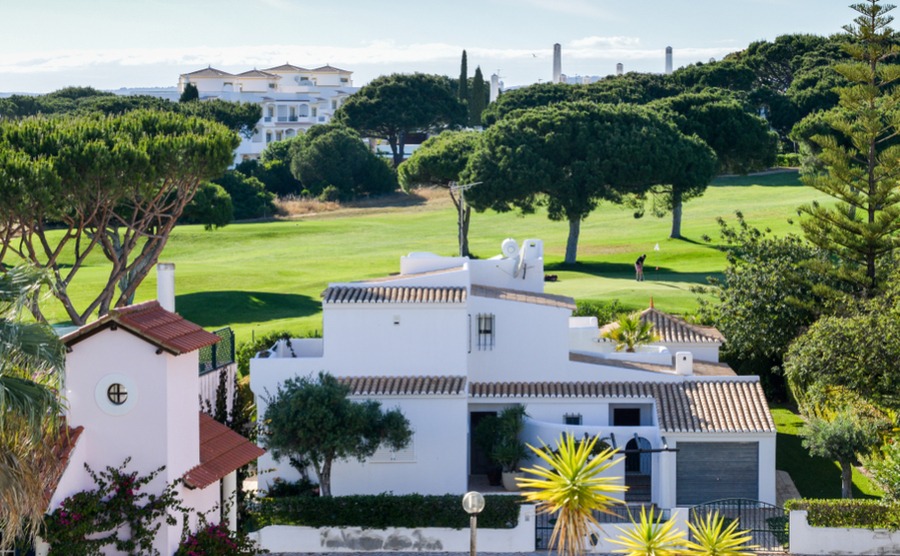Portugal’s picturesque whitewashed villages, sunny climate and wonderful leisure opportunities, including world-class golfing and yachting, are big draws for anyone looking for an amazing quality of life. The buying process is quite straightforward, but there are potential stumbling blocks if you’re unfamiliar with the language, the legal system or finances. We’re running through the key steps in how to purchase a home in Portugal.
Who can buy a home in Portugal?
British buyers need not worry; anyone can purchase a home in Portugal, regardless of European Union citizenship. In addition, Portugal has a special so-called ‘Golden Visa’ programme, which it has run since 2012. It gives a five year residency permit, after which you can apply for permanent residency. Following that, you can apply for citizenship in Portugal after six years.

Vilamoura, Algarve (Alexandre Rotenberg / Shutterstock.com)
Navigating the legal system
Portugal’s legal system is quite different to that of most English-speaking countries. You’ll need two key professionals on your side throughout the process.
Firstly, the notary, or notário. They represent neither you nor the vendor. Instead, they are a neutral party acting on behalf of the Portuguese state, giving impartial advice to both sides to ensure everything is carried out legally. The notary will also authenticate any documents and witness the wishes contained within them.
Secondly is a lawyer. Understanding a different legal system in a different language is not easy, particularly when it is a high-value purchase. There’s a lot at stake. At Distinction by Property Guides, we have carefully built up relationships with handpicked legal professionals over 15 years, and we are more than happy to give you a free introduction. Simply call your property specialists in the Resource Centre on 020 7898 0549 or send us an email at [email protected]. We’ll discuss your personal requirements and recommend a lawyer who fits those needs.
What do I need to do before I can buy?
The very first step to take is to obtain your fiscal number (NIF, Número de Identificação Fiscal). Residents and non-residents alike are entitled to one. Just take proof of address (even if it’s not in Portugal) and a passport and visit your local tax office. It’s difficult to do it out of Portugal on your own, but you can find paying services that will help you.
Secondly, visit our luxury property selection to start searching for your home. Once you have a few that tick all of your boxes, make a viewing trip to the country to see them all.
What are the stages of buying?
There are three main parts of the buying process, once you’ve found your dream property. These are the following:
Reserving the contact
The first part is to reserve the contract. If your offer, made through your agent, is accepted, you will sign a promissory contract stating your intention to buy. The vendor will normally expect a small deposit of €5,000. The home is held off the market while your lawyer performs due diligence, like ensuring that the owner has the legal right to sell this property. It’s also a good idea to get a building survey done at this point; this will avoid any unexpected problems arising later on.
Promissory contract
The second stage, when you’re satisfied with the previous checks, is the promissory contract. This is where, once your lawyer has prepared the contract, you’ll then put down the official deposit on the property. A sum of 10-30% is usual. It is rarely refundable – you will forfeit the right to if you back out. However, if the seller doesn’t continue with the sale, they often need to pay double the deposit back to you.
Your lawyer will transfer the deposit to the vendor’s lawyer, upon which you’ll receive a target timescale for the final deed. This can range from three weeks to three months.
Final deed
The final deed, called an escritura, is signed in the presence of a notary by you and the vendor. The documents will be read aloud prior to being signed by both parties.
The notary will only allow the property to change hands when you pay the IMT, or purchase tax.
When this is done, you and your lawyer can register the property with the local tax office and the Land Registry (Registo Predial).
And, with that, you’re set to go – your new life in Portugal awaits you!






